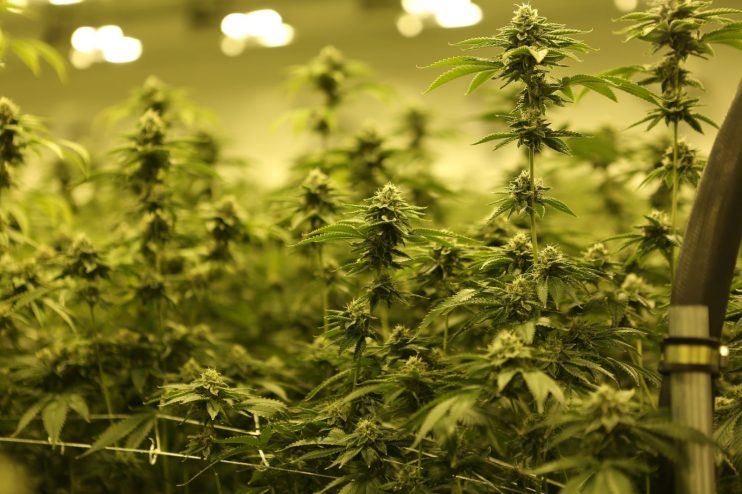Exclusive: Medical cannabis company chaired by former Lord Mayor of London to float on LSE

Hellenic Dynamics, a medical cannabis cultivation business, plans to list on the London Stock Exchange next month, in a move likely to give the budding business a valuation of £50m.
The group will list on the main market of the London Stock Exchange via reverse takeover into a shell company.
“What we were looking for was a way of listing successfully, but also having enough oomph in our listing to accelerate our plans,” Hellenic Dynamics vice president and CEO Davinder Rai told City A.M.
Formed in early 2019, the company focuses on growing, exporting and selling THC-dominant dried cannabis flowers to markets like Germany, where there is demand for the products and the flowers can be legally imported.
“As soon as Kanabo listed in London we were getting phone calls from our lawyers saying, ‘look, London is open, London is going to be the place that a number of cannabis companies will end up listing, and you’d be in very good company if you listed in London,” Rai said.
“I’m hopeful we become the first European cultivator to get onto that exchange.”
Hellenic’s incoming chairman is Sir Anthony Joliffe, who Rai said has significant listed company experience, as well as being the former Lord Mayor of London.
FCA approval
In September, the Financial Conduct Authority allowed medicinal cannabis companies to list on the LSE, opening up the UK market to a growing sector already popular in North America.
The regulator’s green light led to a flurry of activity, with companies like Kanabo Group and MGC Pharmaceuticals enjoying profitable market opens.
Hellenic Dynamics could be the next in line to take advantage of London’s new regulatory framework.
Cannabis
In the UK, cannabis products on the shelves that can be bought without prescription must contain no THC, or technically nothing more than 0.01 per cent.
However, cannabis medicine with more than 0.01 per cent THC is available via prescription from a licensed pharmacy, meaning Hellenic’s products can be precribed in the UK, but not sold on the shelves.
According to Hellenic Dynamics, THC content of 18 per cent and above is the norm, and in Germany, the most requested cannabis products from doctors and pharmacists are those with THC of over 21 per cent.

The company grows its plants in a 200,000-square metre ex-military bunker in Northern Greece, but is headquartered in London.
The CEO quipped that he thought there was something “very romantic about growing cannabis in an ex-bunker.”
Journey so far
Rai said he first became involved in the cannabis industry when his father, a kidney transplant patient, faced serious health problems. One of his transplanted kidneys had become cancerous and as a result Rai’s father was put on a heavy course of opioids for pain management.
“You could see that the pain treatment really wasn’t touching the sides,” the CEO said.
“My mother was beside herself, and it was around that time that I’d been reading so much about cancer and cannabis, that if there was a way that he could have accessed cannabis then, I guarantee to you that his recovery would have happened faster, because the side effects that he was having with the opioid medicine… Well I think he’d have rather had had the cancer.”
Rai said the UK issues more opioid prescriptions per capital than anywhere else in the world.
He said in North America, in states that have legalised medical cannabis, opioid prescriptions have fallen by about 30 per cent.
“I really think as a pain management medicine [cannabis] has more of the benefits with far less of the side effects,” he added.
Medical cannabis on a prescription basis is used for conditions including chronic pain, intractable chemotherapy-related nausea, PTSD, anxiety, insomnia, tourette’s syndrome, substance use disorder, multiple sclerosis, IBS and spinal cord treatment.
The cannabis industry is calling for a further easing of restrictions on medical use of the drug, arguing that the sector is being held back from creating thousands of jobs as uptake remains low three years after being legalised in the UK.